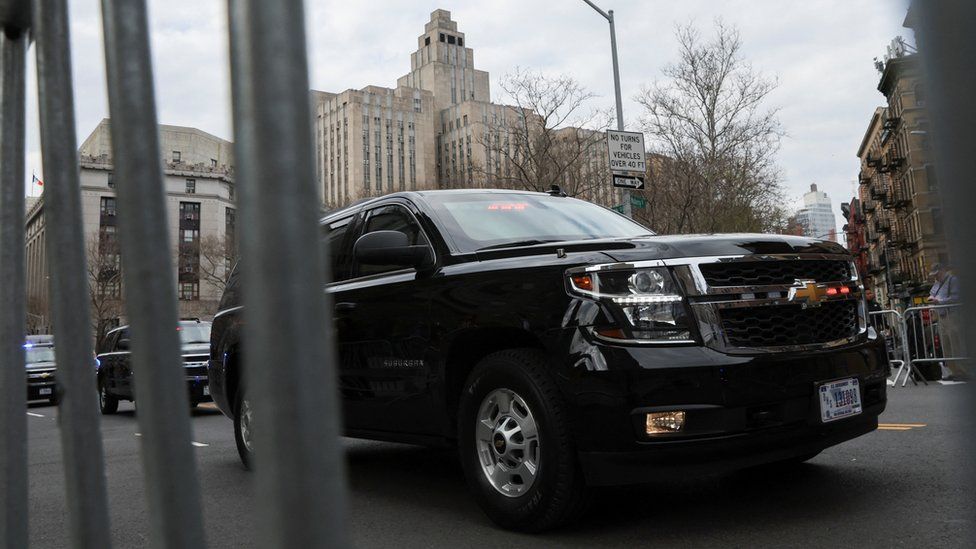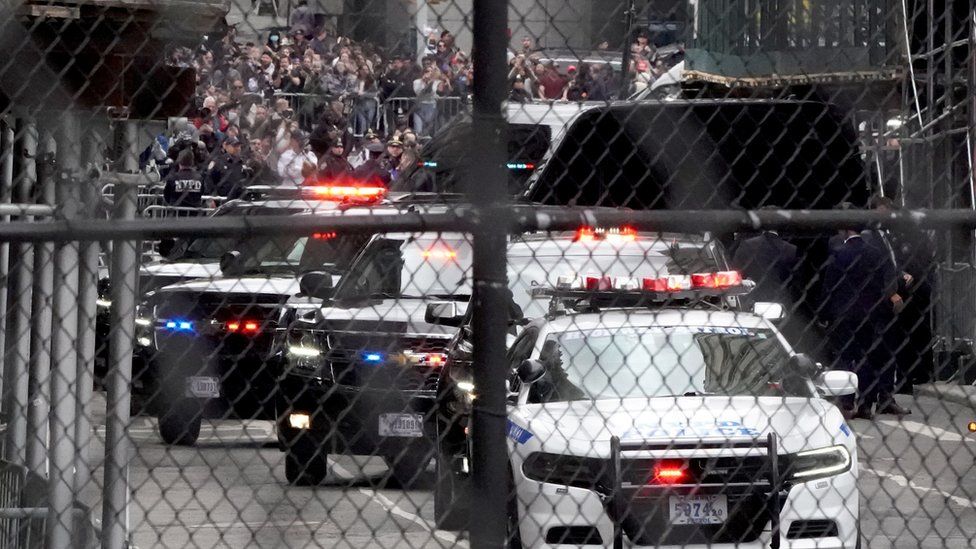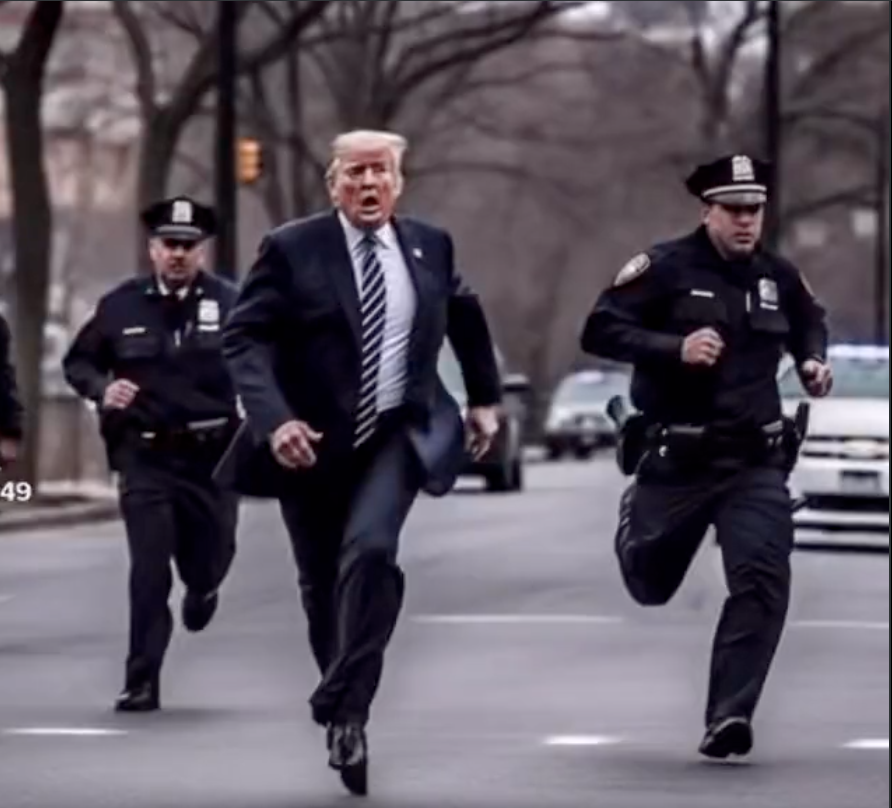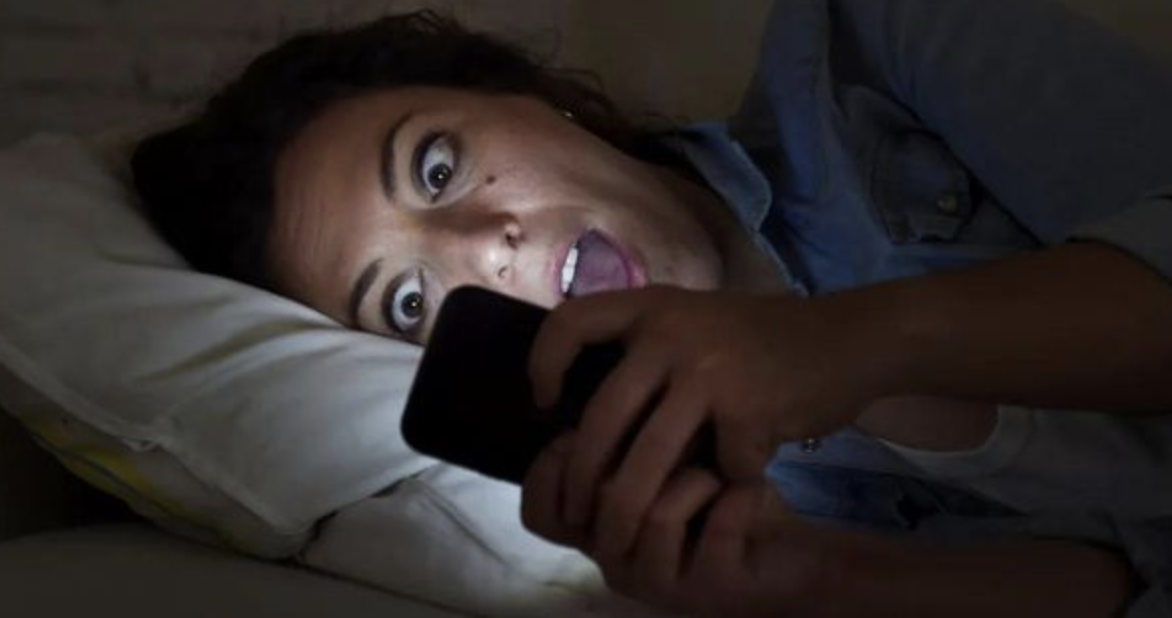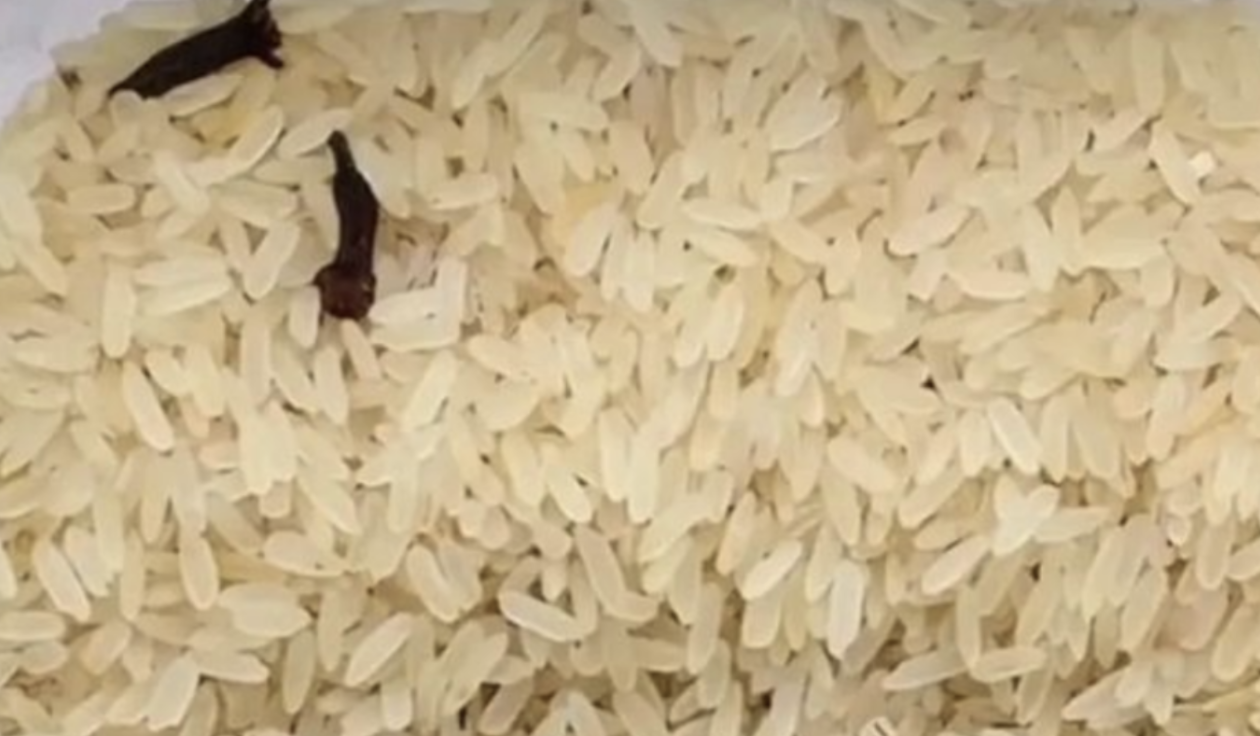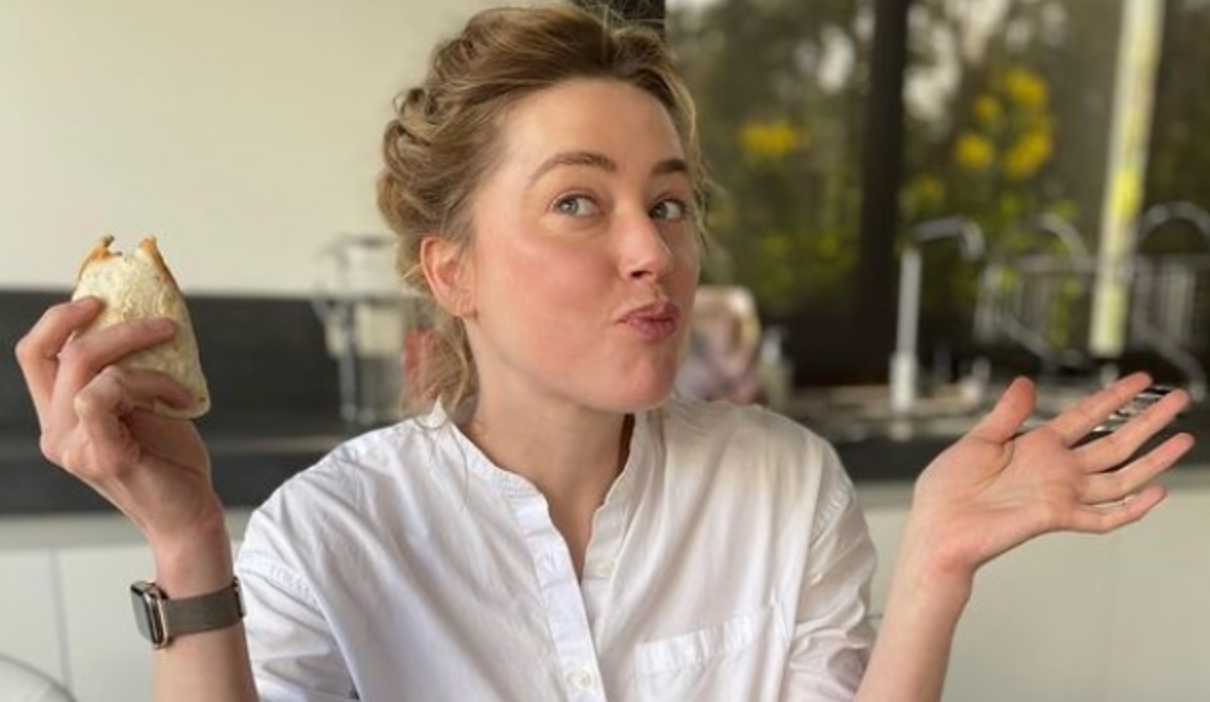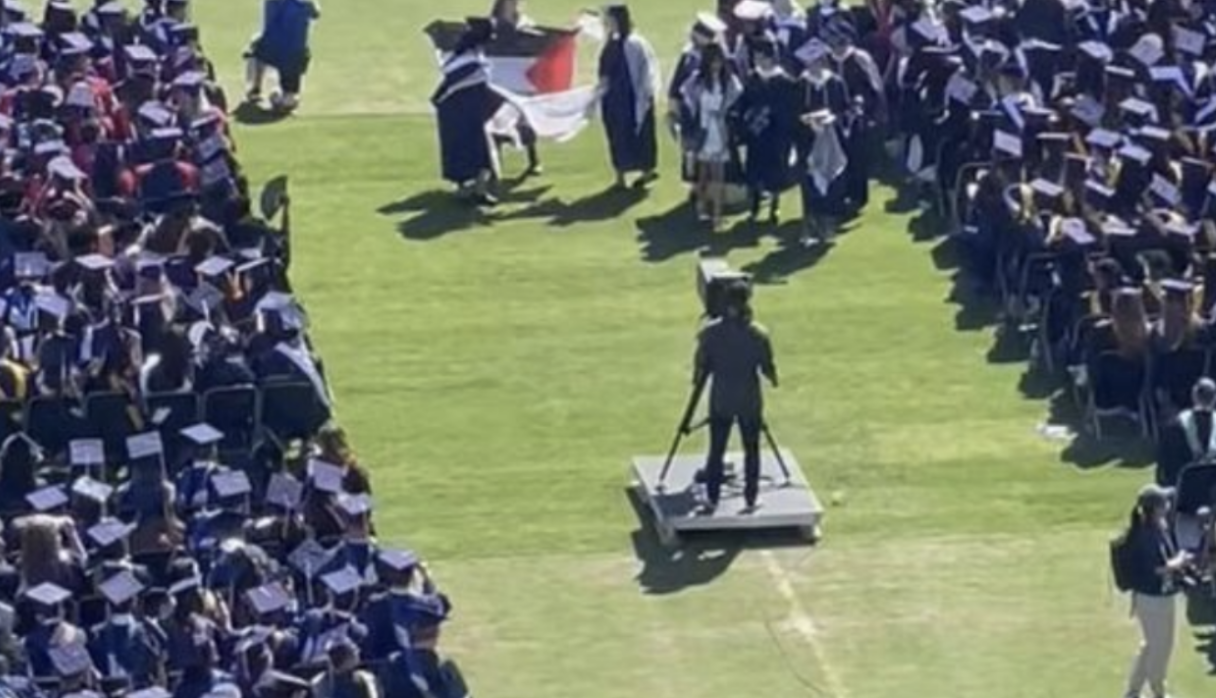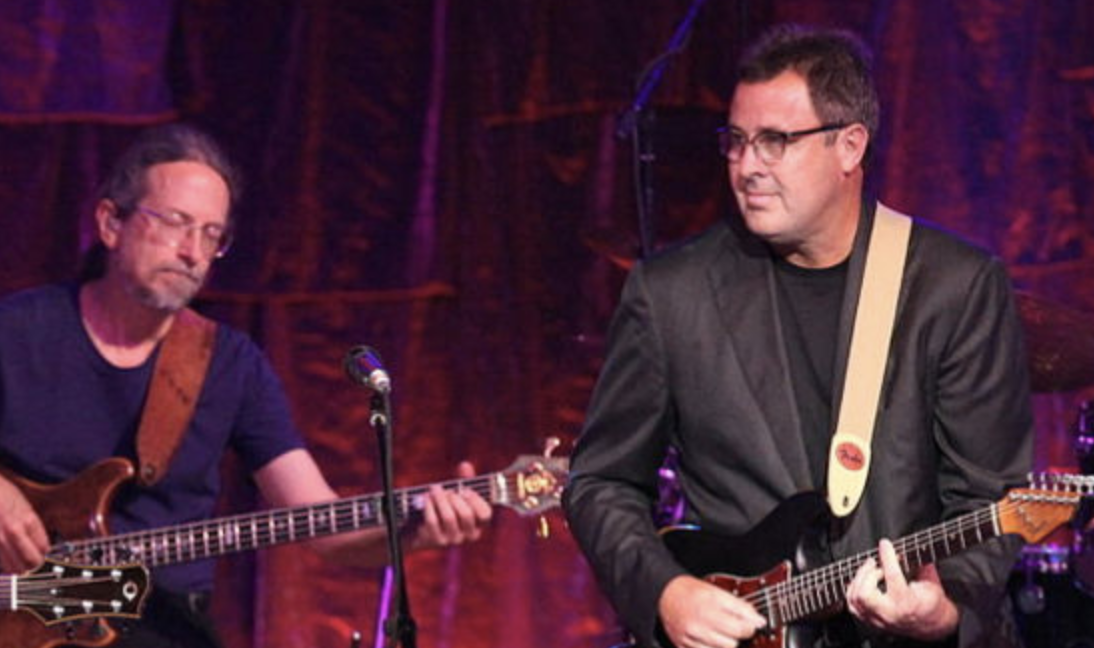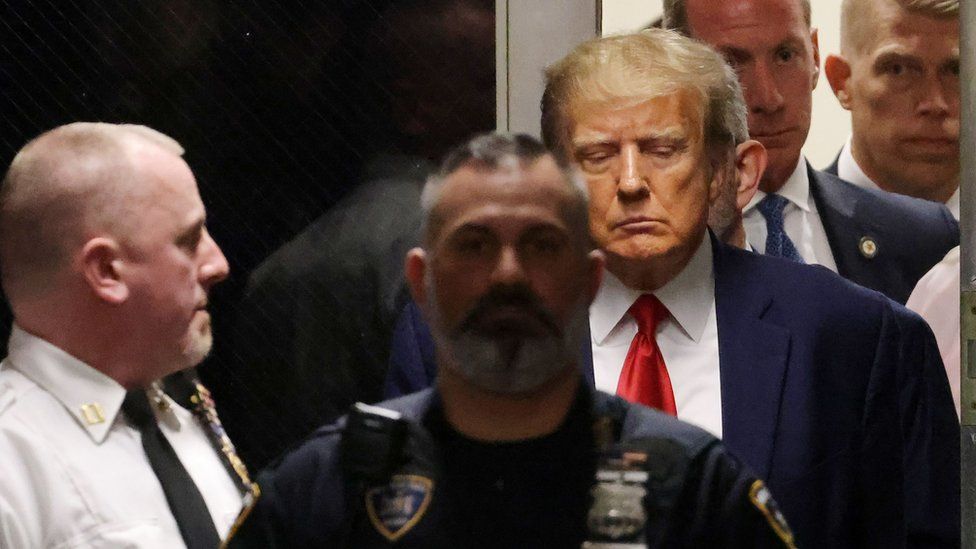
Donald Trump is one step closer to being criminally charged, and potentially serving time in prison, after a Manhattan grand jury voted to indict him for his role in the 2016 hush money payout to porn star Stephanie Clifford a.k.a. Stormy Daniels. In a statement, a spokesperson for the Manhattan district attorney’s office said: “This evening we contacted Mr. Trump’s attorney to coordinate his surrender to the Manhattan D.A.’s Office for arraignment on a Supreme Court indictment, which remains under seal. Guidance will be provided when the arraignment date is selected.”
Shortly after the news broke, Trump issued a multi-paragraph tirade in which he referenced Russia, George Soros, “Radical Left Democrats,” “Crooked Democrats,” witch hunts, and Joe Biden
What are the charges against Trump?
That won’t be clear until Trump is formally indicted, but there have been some hints over the last few months.
He left his home at Trump Tower shortly after 13:00 local time (18:00 BST). He waved to waiting cameras, making a fist, before getting into his car.
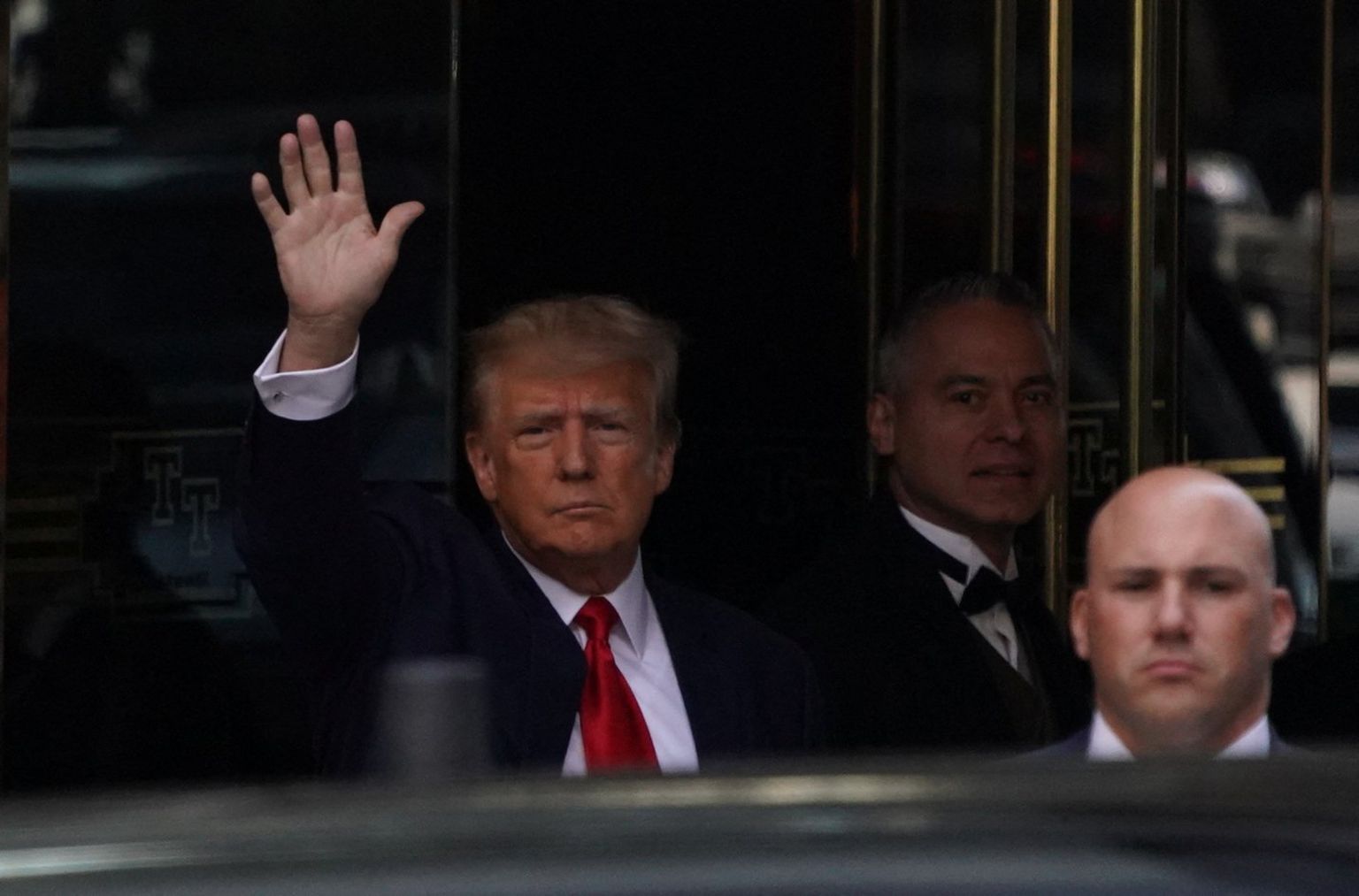
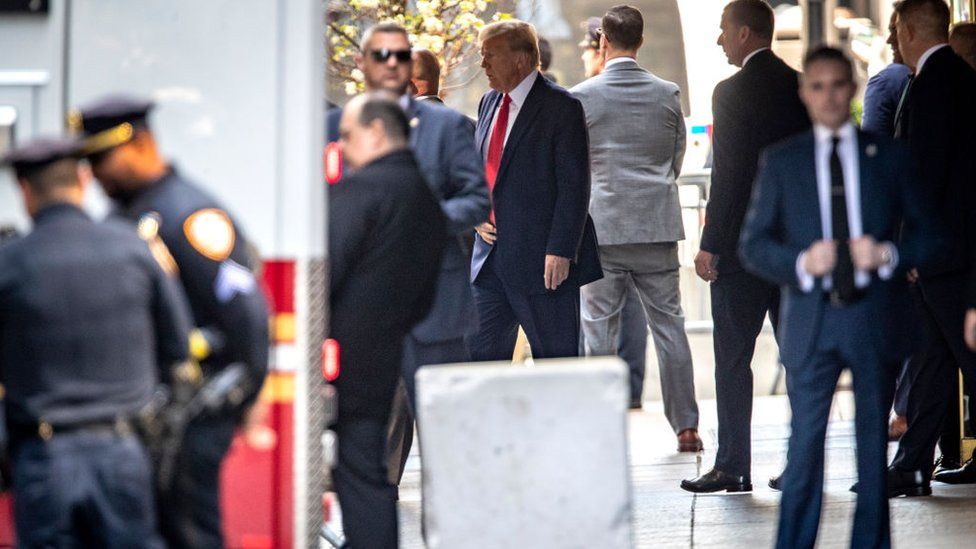
It took just minutes for the former president’s motorcade to make the 6.4km (4 mile) drive from his home at Trump Tower to the Manhattan Criminal Courthouse. During the drive, he posted on his social media website: “Seems so SURREAL — WOW, they are going to ARREST ME”.
He appeared calm and serious as he walked into the courthouse, pausing to wave at the crowd.
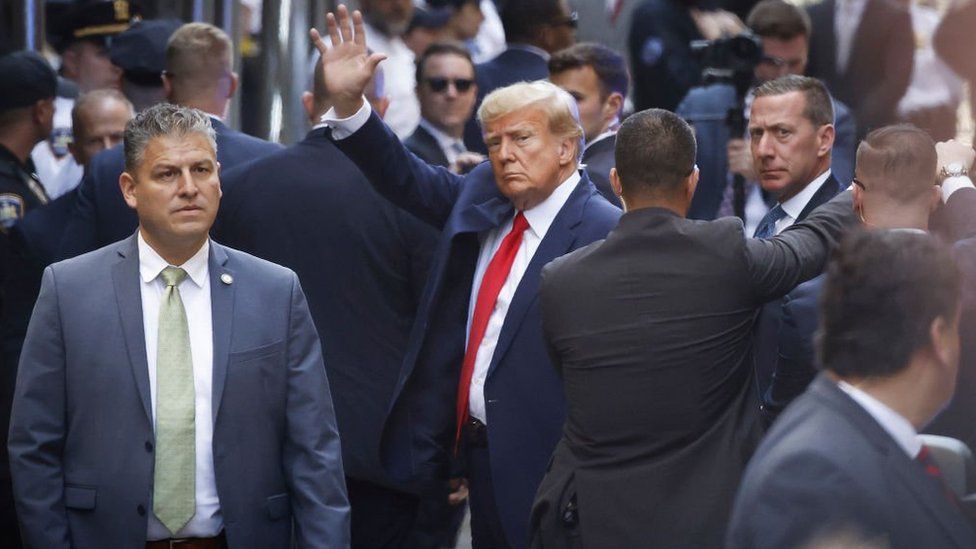
Once inside, he surrendered to the authorities and was booked and processed. He then was seen walking into the courtroom.
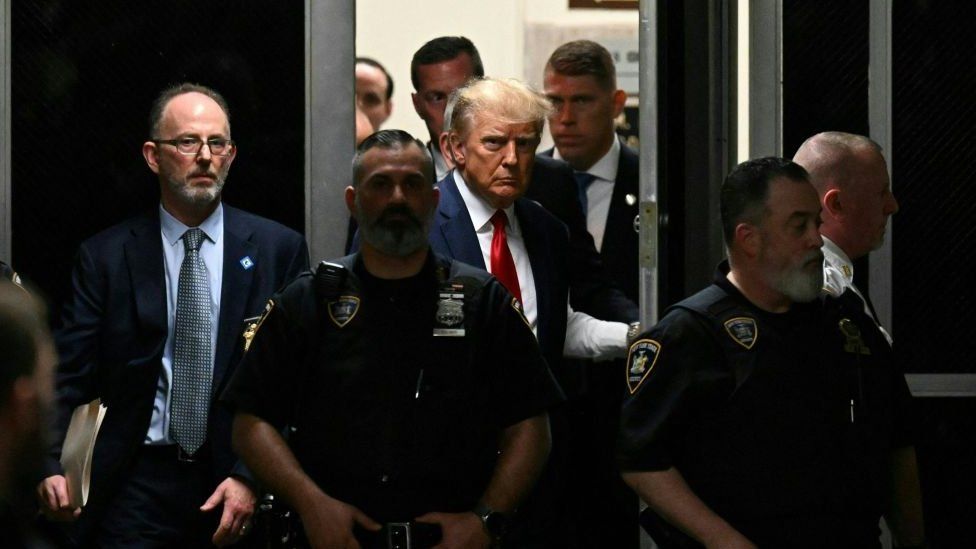
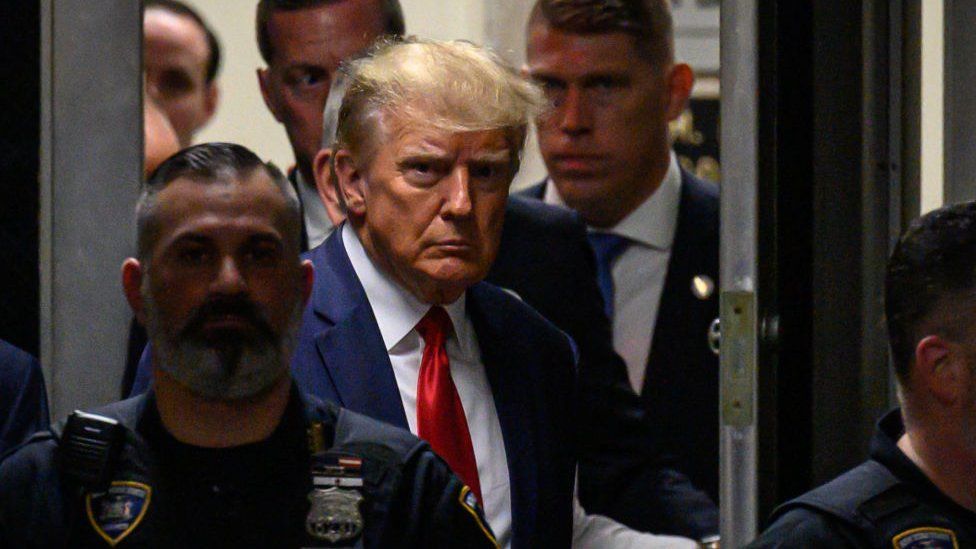
Inside, he sat in front of the judge, surrounded by his legal team. The former president of the United States then entered his not guilty plea.
Bragg’s office began presenting evidence to a grand jury at the end of January, signaling that a charging decision was imminent. Among the witnesses who testified were former National Enquirer publisher David Pecker, longtime Trump counselor Kellyanne Conway, and former Trump attorney Michael Cohen. Cohen’s testimony was presumably of significant interest to prosecutors, given that he was the actual person who paid Daniels the $130,000 in October 2016 to keep her quiet, and pleaded guilty in 2018 to federal charges related to the hush money deal.
Cohen has previously said he arranged the hush money payoff at Trump’s direction; he told Congress that he was reimbursed for the $130,000 while Trump was in office, with the then president personally signing checks each month. Asked why the reimbursement was spread out over approximately a year’s time instead of being taken care of in one fell swoop, Cohen said it was “in order to hide what the payment was,” and that it was meant to “look like a retainer.” And Trump, he testified under oath, “knew about everything.” Speaking to reporters after he testified before the grand jury in mid-March, Cohen said: “My position is that, at the end of the day, Donald Trump needs to be held accountable for his dirty deeds, if in fact that’s the way that the facts play out.”
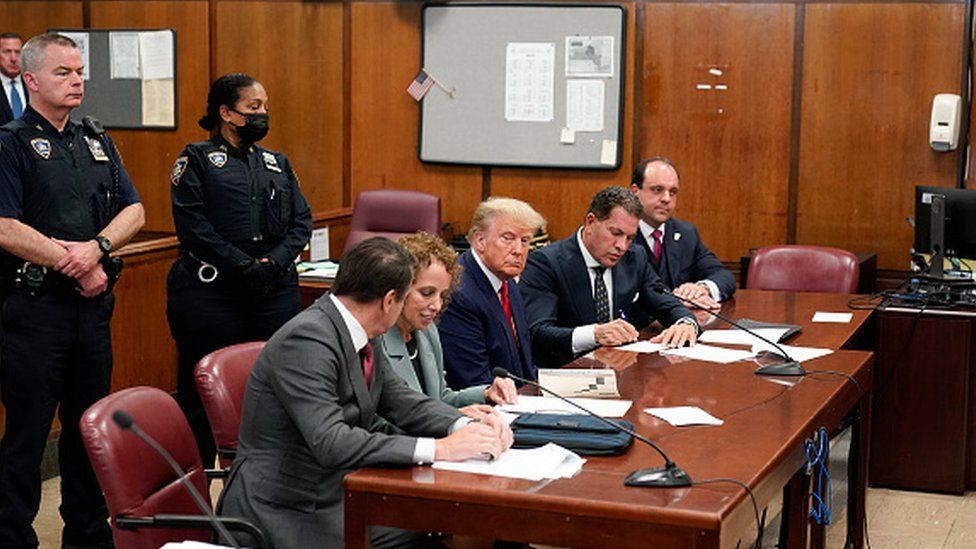
Daniels herself met with prosecutors on March 15.
While a conviction is in no way a sure thing, should he be found guilty, Trump could go to prison for up to four years. Asked earlier this month if he would drop out of the 2024 presidential race if he were to be indicted, the ex-president and current presidential candidate responded: “I wouldn’t even think about leaving,” adding that criminal charges would “probably…enhance my numbers.”
Of course, today’s news is far from the only legal issue Trump is facing. The Justice Department is currently running a pair of criminal investigations into both his handling of classified documents and his attempt to overturn the 2020 election. In January, Fulton County district attorney Fani Willis, who has been investigating Trump and his allies’ attempt to overturn the election in Georgia, said charging decisions in that case would be coming soon.
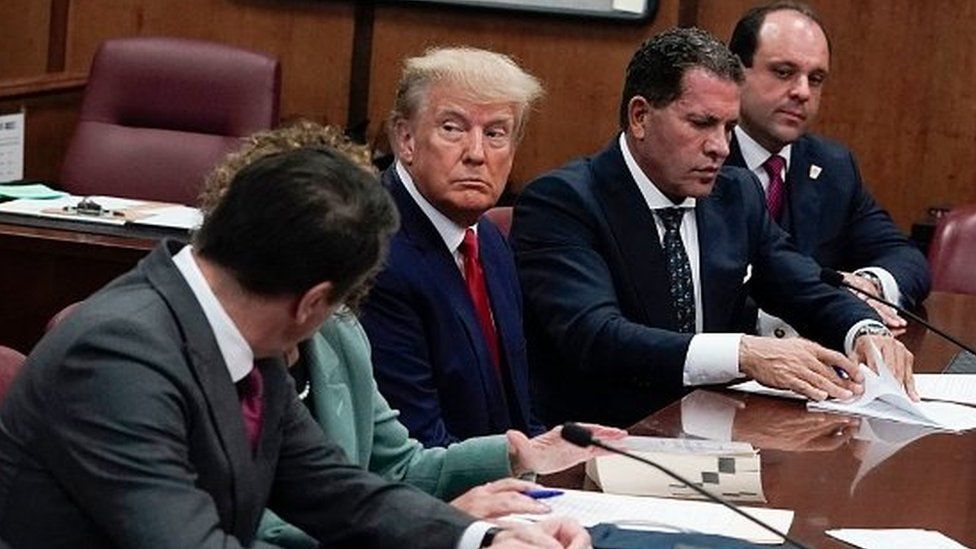
Is Trump facing prison time?
Indeed: up to four years for a conviction on a felony bookkeeping charge, and more if Bragg hits him with multiple offenses.
How exactly will this all play out? Like, will Trump be arrested? Handcuffed? Perp-walked?
According to the Times, though “it is standard for defendants arrested on felony charges to be handcuffed, it is unclear whether they will make an exception for Mr. Trump because of his status.” (Trump, who has claimed an indictment would help his chances of winning the 2024 election, might want an elaborate perp walk involving handcuffs, to get his supporters all riled up on his behalf.) Following an arraignment, Trump “would likely be released on his own recognizance because an indictment likely would contain only nonviolent felony charges; under New York law, prosecutors cannot request bail in most such cases.”
For this to play out, Trump, who now lives in Florida, would have to come to New York to face the charges. In the event the former guy decides to ignore the indictment and stay put at Mar-a-Lago, things could get wild. Again, the Times:
“In the unlikely event that the former president refuses to surrender, he would put Governor Ron DeSantis of Florida, his leading but undeclared rival for the Republican nomination, in an awkward political position. Under law, the role of Mr. DeSantis would be essentially ministerial and he would have few legal options other than approving an extradition request from New York. Still, if New York prosecutors sought Mr. Trump’s extradition, Mr. DeSantis would face an unenviable dilemma. He would be compelled to choose between authorizing an arrest warrant for Mr. Trump and inflaming his base, or attempting in some way to aide his Republican rival, and possibly face legal action as a result.“
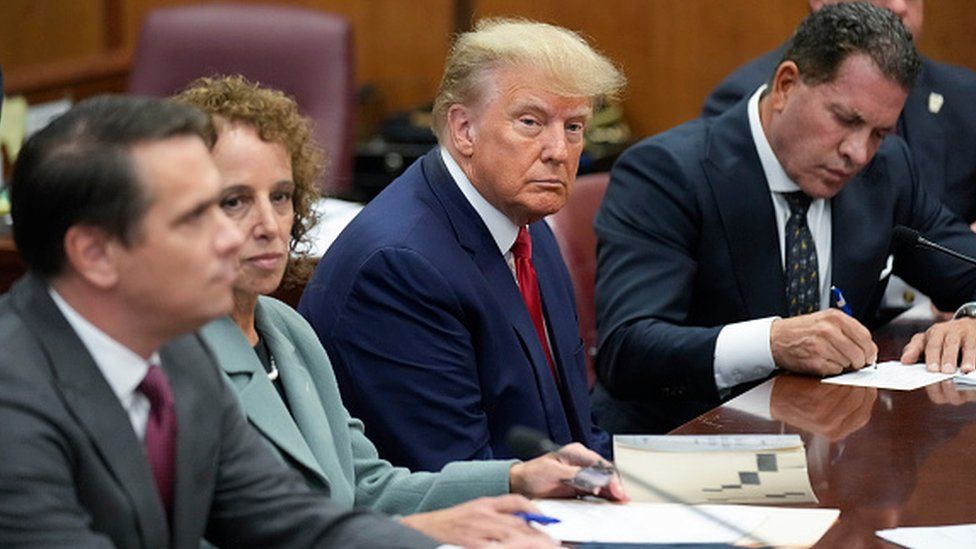
Okay, please fast-forward
In January 2018, approximately one year after Donald Trump had taken office, The Wall Street Journal revealed that in October 2016, Michael Cohen, the then lawyer for then presidential candidate Trump, had paid porn star Stephanie Clifford, a.k.a. Stormy Daniels, $130,000 to prevent her from going public about them allegedly sleeping together. While American Media Inc., the publisher of the National Enquirer, had previously had an agreement in place to be on the lookout for unflattering stories about Trump in order to kill them— and had indeed paid Playboy model Karen McDougal $150,000 to suppress her story about an alleged Trump affair, as The Wall Street Journal reported in 2016—when the Daniels situation came up, AMI chief David Pecker told Cohen that Team Trump would have to deal with Daniels themselves.
The Trump Organization subsequently reimbursed Cohen over the course of Trump’s first year as president, with the leader of the free world signing checks about every month in between official government business. In previous congressional testimony, Cohen told lawmakers that he was paid back over many months, instead of in one lump sum, “in order to hide what the payment was,” explaining it was meant to “look like a retainer.” Cohen has also flatly stated he arranged the hush money payoff at Trump’s direction.
This might be a dumb question but…why can’t you pay whomever you want to not tell people you had an affair together?
The problem appears to stem from the fact that Trump was running for office at the time, and the hush money payment may have violated campaign-finance laws, since it was clearly made to help Trump’s chance of winning the election, which Daniels coming forward likely would have hurt. In 2018, Cohen pleaded guilty to engaging in campaign-finance violations (among other charges), and was sentenced to three years in prison.
But wait, wasn’t there talk of charging Trump with all this a while back and it never happened?
That’s correct: Federal prosecutors in New York investigated Trump’s role in the hush money deal, but closed their probe in July 2019 without an indictment, in part, per Vox, “because Trump was the sitting president and per Justice Department policy he could not be indicted.”
As Vox also notes:
As Trump was about to leave office in 2021…Southern District of New York prosecutors revisited the case, discussing whether they should reopen it when he no longer had presidential immunity. According to CNN legal analyst Elie Honig’s recent book Untouchable, prosecutors were split on the strength of the case. “Some believed the evidence was more than enough to charge in an ordinary case, while others thought it was still a close call, though still chargeable,” Honig writes, continuing, “Even if the evidence was sufficient to support a charge, it also wasn’t a slam-dunk case in the majority view.” He adds that some on the team believed the hush money scheme was “serious, but not the end of the world,” and that it seemed “somehow trivial and outdated” compared to his later acts like trying to overturn Joe Biden’s election win. So ultimately, SDNY decided to let it lie.
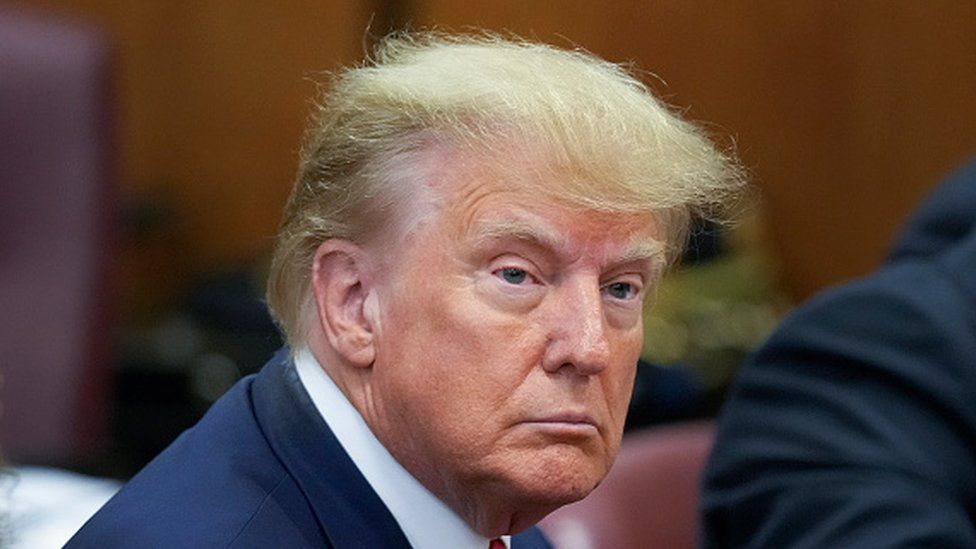
After a nearly hourlong hearing, Donald Trump made his way out of the courthouse just after 15:30 pm local time.
But then!
Last November, The New York Times reported that Bragg had refocused the criminal investigation into Trump—but not over the crimes the Trump Organization would be found guilty of just a month later. Instead, prosecutors were returning to the matter that originally sparked their investigation into Trump a number of years back: the hush money payment. In January, the Times reported that the DA’s office had begun presenting evidence to a grand jury.
Who spoke to the grand jury?
A whole bunch of people, including but not limited to former AMI publisher Pecker, longtime Trump adviser Kellyanne Conway, and, crucially, Michael Cohen. Trump himself was invited to appear before the grand jury but declined. Stormy Daniels met with prosecutors in mid-March.
And we’re assuming Trump has never actually admitted to the hush money deal, right?
In fact, he has! Even more hilariously, he literally wrote, on Twitter, of the NDA they made Daniels sign after paying her off: “These agreements are very common among celebrities and people of wealth.”
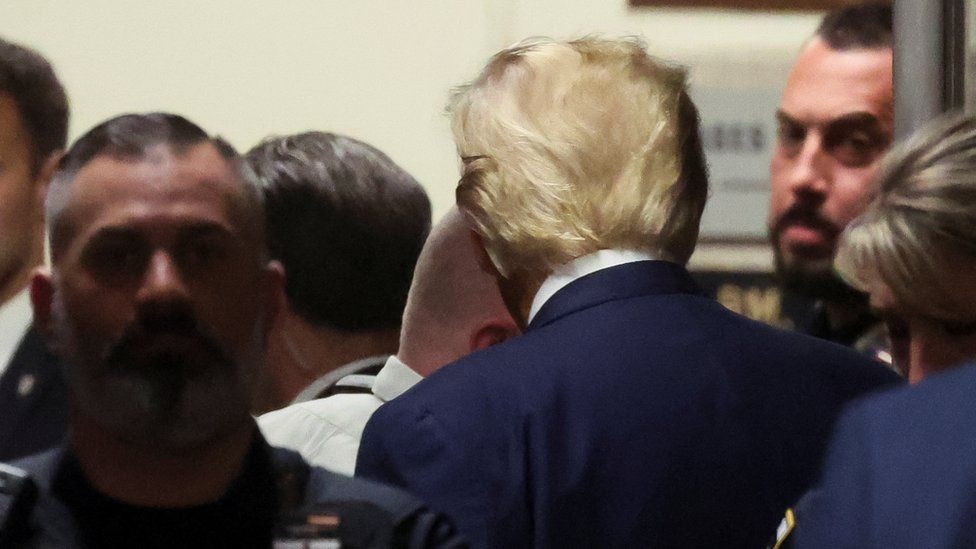
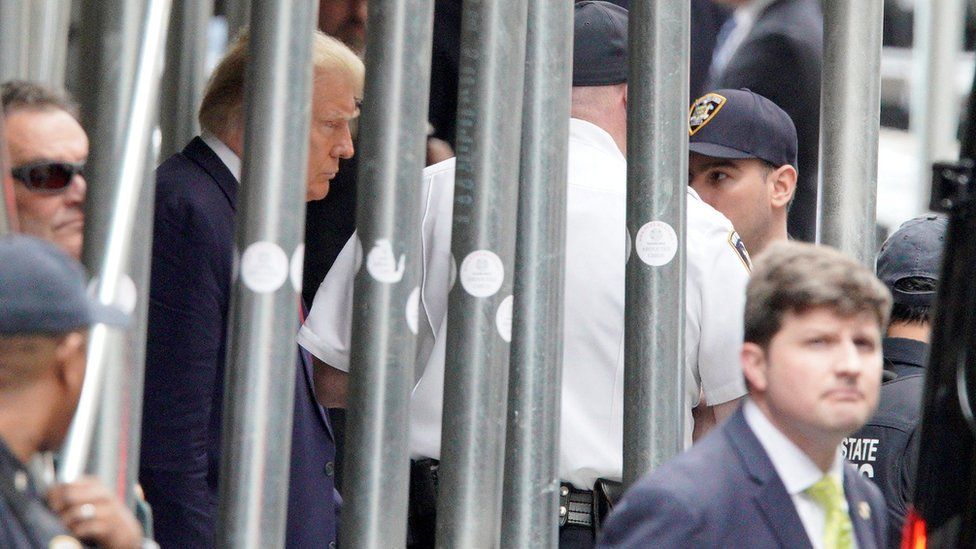
What has Trump more broadly said about all of this?
Not surprisingly, Trump has, on numerous occasions, dubbed the investigation into the hush money payment a “witch hunt,” which is how he describes anything he doesn’t like, especially if it concerns the possibility that he will receive the same treatment as everyone else in the eyes of the law.
He has also denied having an affair with Daniels (with McDougal as well), despite admitting to the hush money payment in Daniels’s case.
Are Republicans losing their minds?
Of course. Kevin McCarthy tweeted, “Here we go again—an outrageous abuse of power by a radical DA who lets violent criminals walk as he pursues political vengeance against President Trump. I’m directing relevant committees to immediately investigate if federal funds are being used to subvert our democracy by interfering in elections with politically motivated prosecutions.” Ted Cruz wrote, “The Trump indictment is garbage.” Marjorie Taylor Greene insisted that “Every single Republican should go scorched earth.”
Has Trump suggested his supporters should engage in violence on his behalf, à la January 6?
In his typical Trumpian way, yes. Over the weekend, he wrote on Truth Social that people must “PROTEST” and “TAKE OUR NATION BACK,” in response to what he predicted would be a March 21st arrest. While he did not literally call for violence, his language was deeply reminiscent of him telling his supporters to “fight like hell” on January 6, shortly before they stormed the US Capitol.
